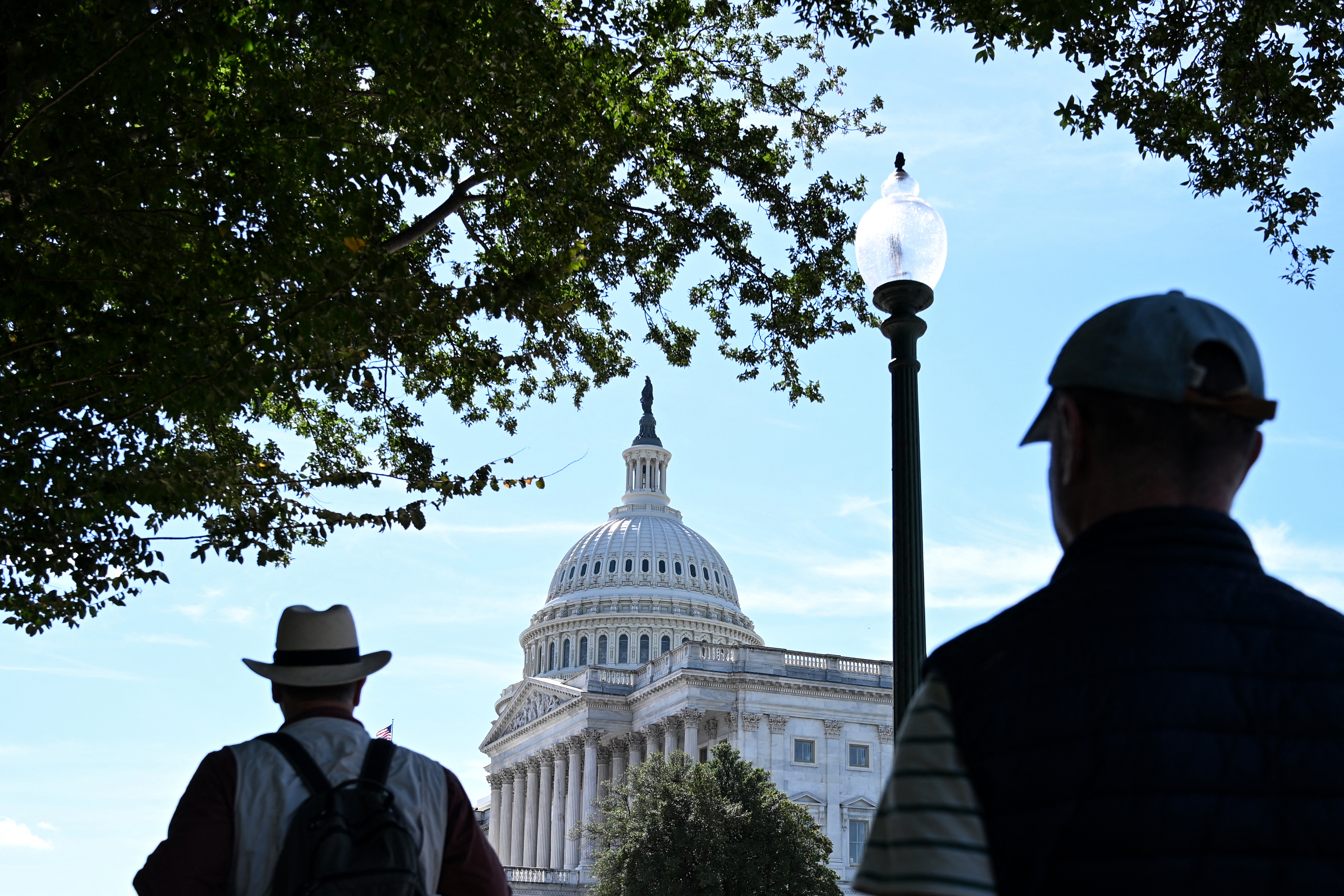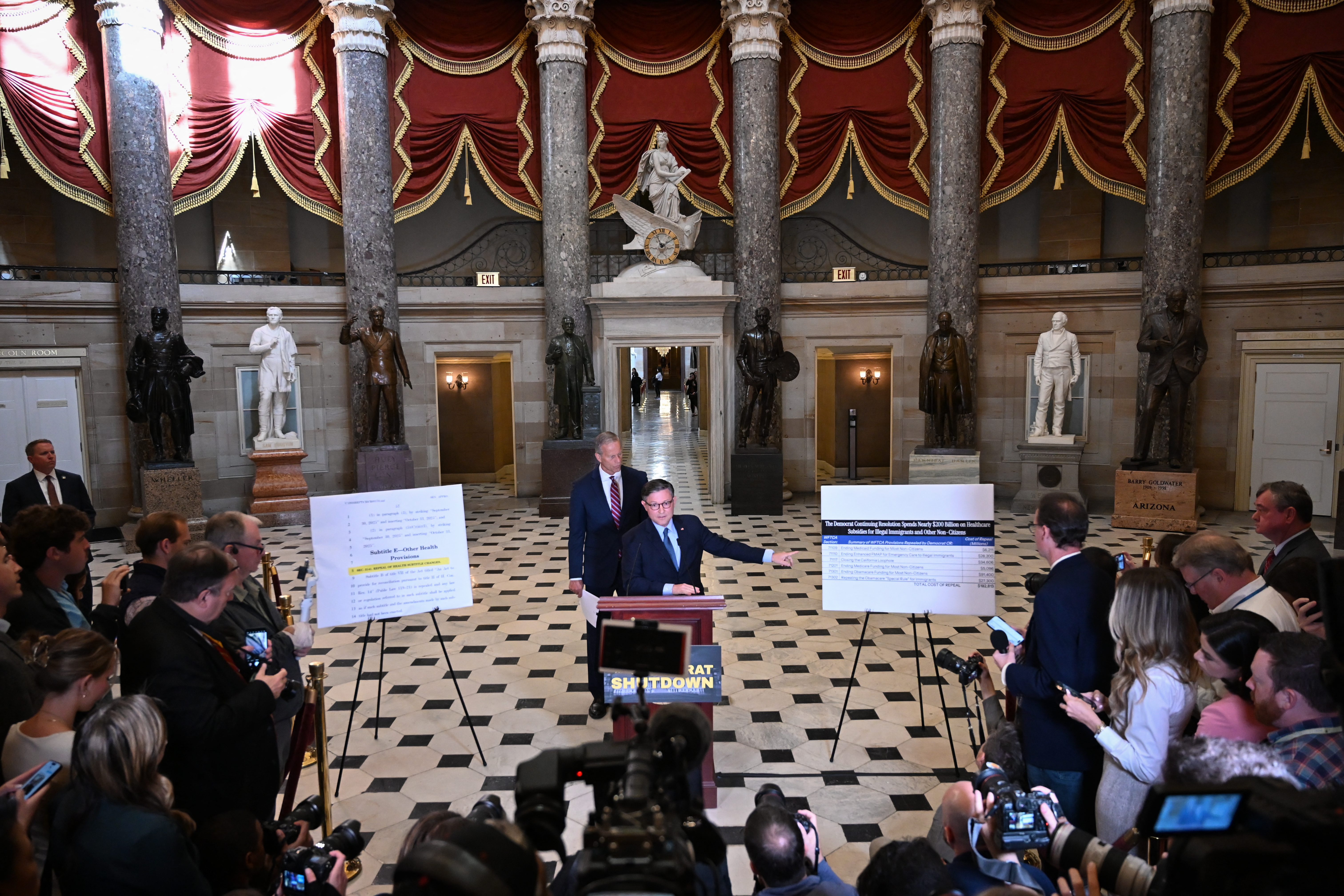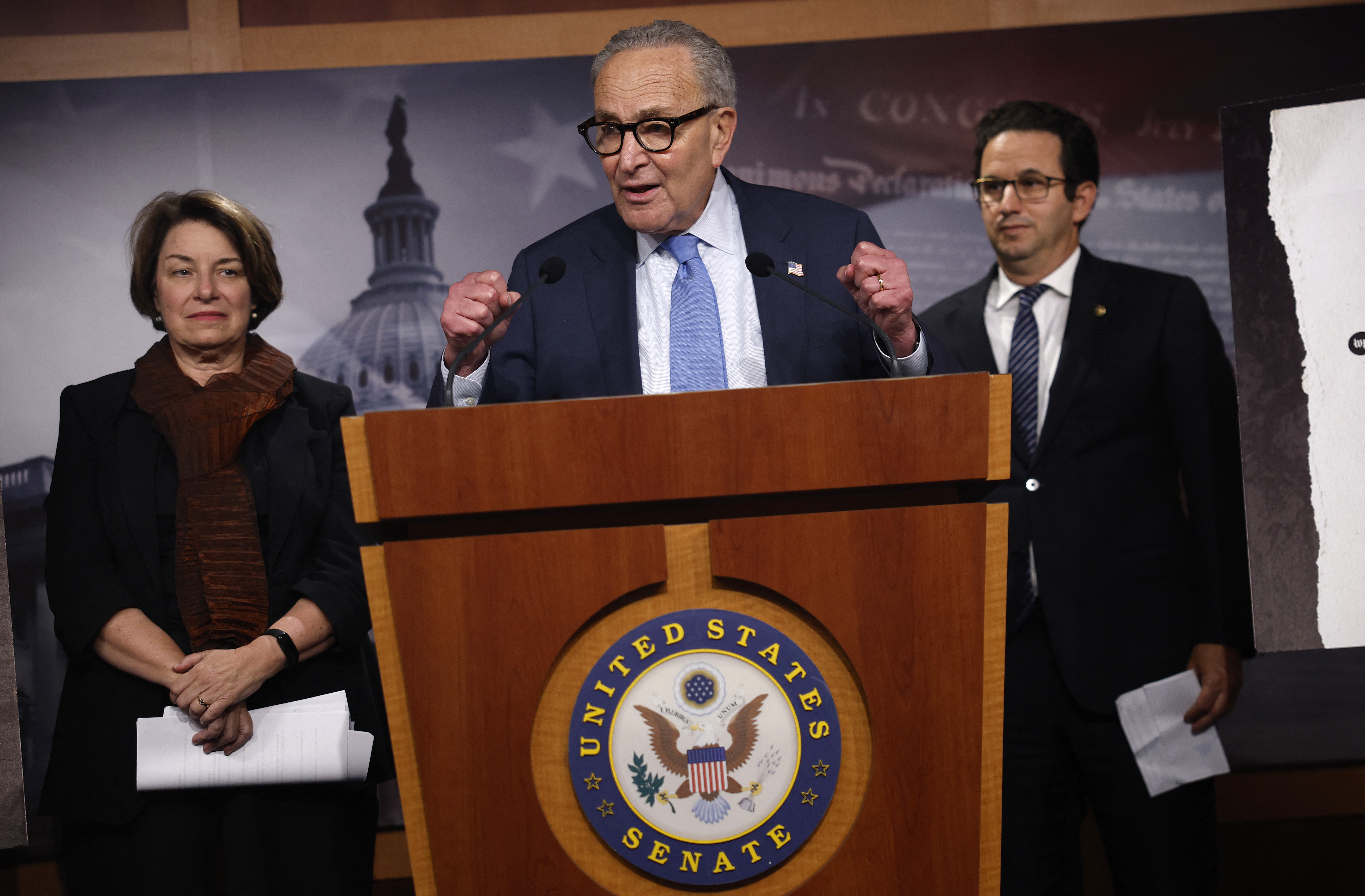
WASHINGTON - As the US federal government entered a shutdown -- the first time in nearly seven years -- the confrontation between President Donald Trump's administration and the Democratic Party has further escalated.
The Trump administration has cut funding and programs in Democratic-led states and sought to dismantle federal agencies led by Democrats. Meanwhile, Democrats have shown a rare sense of unity, hoping to reverse declining approval ratings through the fight.
This new round of partisan conflict over the government shutdown is markedly different from previous ones, characterized by greater hostility and malice that has pushed partisan strife to new heights. It highlights the deepening political polarization in the United States while inflicting greater harm on the American people.
Trump ramps up offensive
White House officials and Trump himself have repeatedly said that the administration would use the shutdown to advance its federal downsizing plan, carrying out large-scale layoffs. Democrats have accused Republicans of trying to use federal workers as pawns in this budget dispute, calling it "an attempt at intimidation."
On Tuesday, just a few hours before funding ran out, Trump told reporters in White House that if a government shutdown were to occur, the administration would be laying off a lot of people. "So we'd be laying off a lot of people that are going to be very affected. And they're Democrats," he said.
On Wednesday, day one of the shutdown, Vice-President JD Vance warned that a prolonged shutdown would lead to layoffs. "Let's be honest, if this thing drags on for another few days, or, God forbid, another few weeks, we are going to have to lay people off," Vance told reporters at a White House press briefing.

Also on Wednesday, White House Office of Management and Budget Director Russell Vought announced that the Transportation Department was freezing $18 billion in federal funding for two major infrastructure projects in New York City.
Vought also said that the Energy Department had cancelled nearly 8 billion dollars in funding for climate-related projects and other efforts -- largely in Democratic-led states.
"A lot of good can come down from shutdowns," Trump said, "we can get rid of a lot of things that we didn't want, and they'd be Democrat things." In a social media post, he even called it an "unprecedented opportunity."
ALSO READ: Trump freezes aid to Chicago as bid to end shutdown fails in Senate
Such moves are harshly criticized by Democrats. "Obstructing these projects is stupid and counterproductive because they create tens of thousands of great jobs and are essential for a strong regional and national economy," Senate Minority Leader Chuck Schumer said on X.
Former Republican House Speaker Newt Gingrich, in an interview with The New York Times, called what Trump is doing "unprecedented."
"Trump is taking apart the world of the left," Gingrich said. "I mean, this is a very methodical, aggressive cultural and political and economic offensive."
Democrats show rare unity
"The President gets no special new powers during a shutdown. He can't eliminate agencies. He can't use federal funds to punish his political opponents. As Trump's illegality grows during the shutdown, Democrats' spines should stiffen to oppose his corruption," Chris Murphy, Democratic senator from Connecticut, said on X.
Murphy's statement highlights the greater unity among the Democrats. Several US media outlets noted that, unlike the disorganized state following their election losses, the Democrats are now resolutely insisting on fighting to lower healthcare costs.
"Democrats embrace a shutdown fight in a rare moment of unity against Trump," reported the Associated Press.
In March, the Democrats did not fight all the way, and Congress passed a temporary funding bill at the last moment, allowing the Trump administration to avoid a shutdown crisis. This drew criticism from many Democratic supporters.

Some analysts believe that, with the three branches of power -- the White House, Congress and the Supreme Court -- all controlled by Republicans, the Democrats view the shutdown fight as an opportunity to push their policy agenda and consolidate party solidarity.
"In March the Democrats suffered a serious drop in support from their own ranks when they did not fight harder, including accepting a shutdown," Clay Ramsay, a researcher at the Center for International and Security Studies at the University of Maryland, told Xinhua.
"Even if Democrats gain very little from the current shutdown in policy terms, they will have proven that they are not a doormat, which is important to them internally," Ramsay said.
Yet, in the midst of intense partisan media battles, it remains uncertain whether Democrats will gain the upper hand. The Republicans have portrayed the Democrats as the party "obstructing government operations."
Greg Cusack, a former member of the Iowa House of Representatives, believed that the Democrats are engaging in a risky "political gamble": if it fails to achieve the desired outcome, they are bound to suffer even greater political damage.
'Very different' hostility
The biggest difference between this round of shutdown battles and previous ones is the heightened intensity of partisan conflict.
"The fundamental difference is the hostility and vitriol that are behind all of this. It feels very different," Patrick Griffin, a former White House official, was quoted by The New York Times as saying.
This shutdown could become a prolonged partisan struggle, with greater economic and political impact than previous shutdowns. According to prediction market platform Kalshi, there is a 62-percent chance that the government shutdown could last more than 15 days.
READ MORE: White House freezes funds for Democratic states in shutdown slap
Due to the shutdown, approximately 750,000 federal employees have been forced into furlough; some public services have come to a halt; national parks and the aviation system have been affected; and economic uncertainty has increased.
This shutdown is just a microcosm of the growing political polarization and intensified partisan conflict since the Trump administration took office. On issues such as immigration, taxation and healthcare, Republicans and Democrats rarely find common ground. Almost any event can be politicized, and the main goal of both parties seems to be to defeat the other rather than solve problems.
Last month, prominent conservative activist Charlie Kirk was shot and killed. Both parties quickly launched a media and political offensive. Discussions on gun control were largely ignored, while identifying the shooter's political affiliation and attacking the opposing camp became the top priority.
"Polarization in the United States ... serves as a tool for those in power," according to an article published on the Democratic Erosion Consortium in April.


